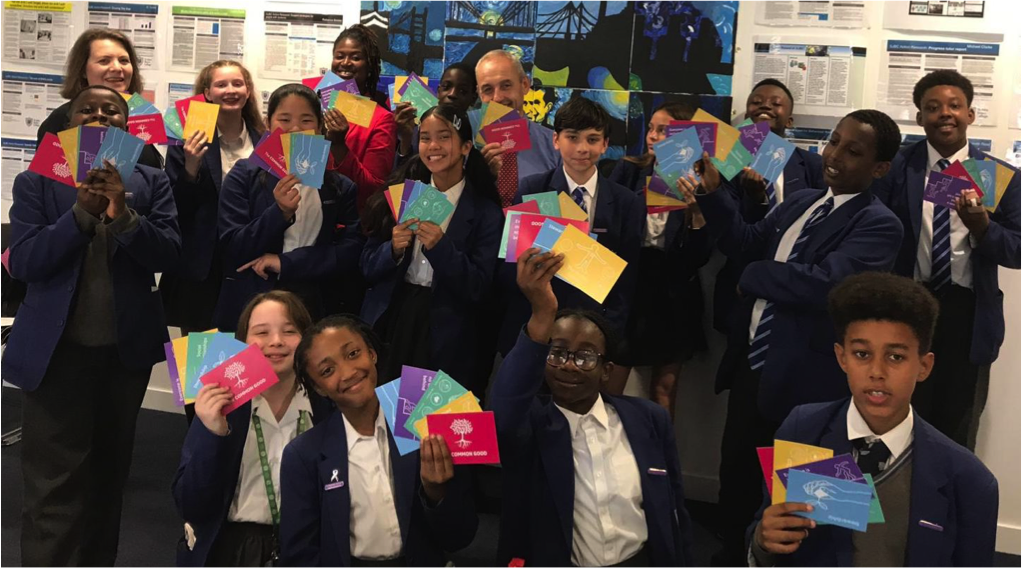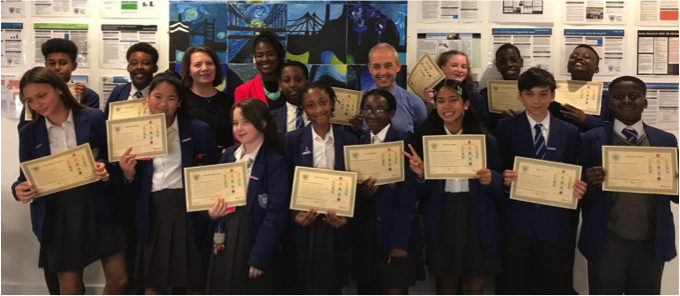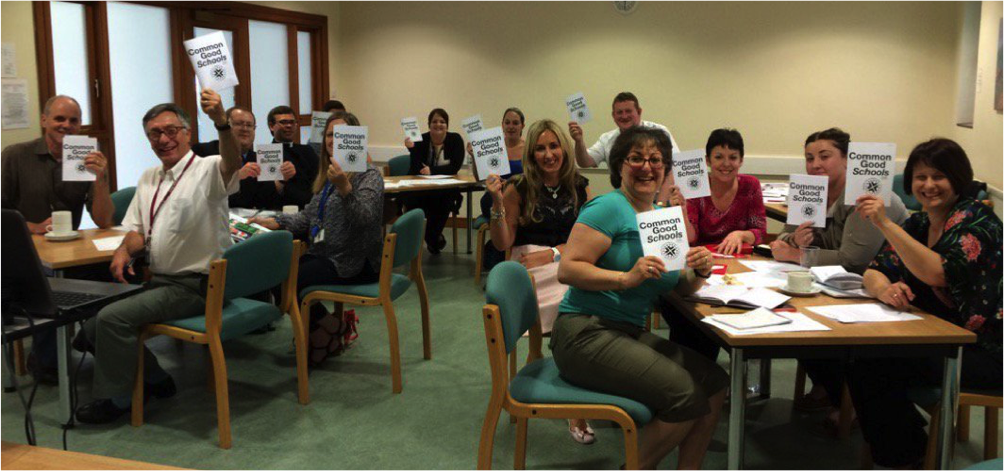
Taking responsibility, finding purpose
Here, Alison Gelder reflects on ways to seek a better distribution of power in our country, and explains how T4CG’s Common Good Schools programme resources young people to take responsibility to help them find their unique purpose as well as benefiting their local community.
Recently I took part in a round table discussion with a group of fairly powerful people to talk about sharing power with the people we work with in communities. Most of us acknowledged the irony of the situation and some spoke from personal experience about the challenges of practical power sharing. Some of us were able to speak from the point of view of being excluded or powerless. All of us are seeking a better distribution of power in our communities and, scaling it across our country.
Often in a discussion about power, there is an emphasis on rights. But for me there are two key factors to think about, both of which came up in our conversation.
The first is the principle of Subsidiarity. This is one of the least well known but most important principles from Catholic social teaching and Common Good Thinking.
Subsidiarity, as we at Together for the Common Good explain it, is where responsibility is taken at the most appropriate level. Its key purpose is to protect the integrity and dignity of the human person.
So decisions should always be taken as close as possible to where they will have their effect. A central authority should perform only those tasks, take only those decisions, which cannot be performed or taken at a more local level. Since responsibility for decision-making implies power to take decisions, this means that power should be vested as close to the action as possible.
For example, when you are bringing up children, you don’t give them too much responsibility too early, but equally you don’t give them too little or you infantilise them and make them dependent. Similarly, the administrative state should not usurp the responsibilities of the family or the community. It is very revealing to run scenarios under the lens of Subsidiarity, from domestic decisions, to social action projects, to government policy.
Therefore, and this is my second factor, there is little point in devolving power and responsibility for a decision to individuals or a community organisation if they do not also have the resources, energy, training, headspace to take it on. Which is where our Common Good Schools programme comes in.

The ten session Common Good Schools programme enables young people to take personal responsibility, to value community and each other, and shows them how to put the principles of the Common Good into practice.
The programme helps them learn a sense of mutual obligation and how to handle power with integrity, for the benefit of the community in which they live. By fostering local engagement, the programme helps to position a school rooted its local neighbourhood as a force for the Common Good.
Grounded in Christian social teaching but communicated in non religious language, this programme enhances moral, spiritual and character education, encouraging independence of thought and enabling young people to discern their unique vocation in relationship with others.
The inspiration for the resource comes from two years of partnership work with Alsop High School in Liverpool, which won the WOW Educate Award in the North West, “for outstanding work to foster community cohesion and develop pride in the wider community of North Liverpool.” They won other awards too, and were shortlisted for a TES Schools Community Impact Award.

Common Good Schools is a linked set of lesson plans, assemblies and community engagement activities designed for KS3 and 4 (and can be scaled up for VI form, or down for Year 6). The lesson plans are very flexible and can be incorporated into pretty much any time slot, from RE lessons to a shortened form in Tutor time.
As our round table reflected on the difficulties people sometimes face in taking or exercising power, one of us came up with the phrase ‘a sense of constructive entitlement’. To me this would be the opposite of the benefit/welfare dependency or the scrounger mentality that is scapegoated in the tabloid media or reality TV.
And again it links with a key aspect of our work at Together for the Common Good; the idea that each of us has a unique vocational responsibility. Reflecting on, and practising, Common Good principles can help us discern what our purpose is and how better to live it out.
The Common Good Schools programme is currently in an extended pilot phase, being used in two schools in London and more are set to join soon. Through the weeks, the young people involved are developing a sense of their own value as human beings located in a community – each with unique gifts and skills. There is a growing sense of purpose as they understand the importance of their role and as they learn to take responsibility in the building of the Common Good.
Alison Gelder
Alison Gelder is Director of Operations at Together for the Common Good. For more information on the Common Good Schools programme click here.
Photos courtesy of St John Bosco College, Battersea, London and Alsop High School, Liverpool.
